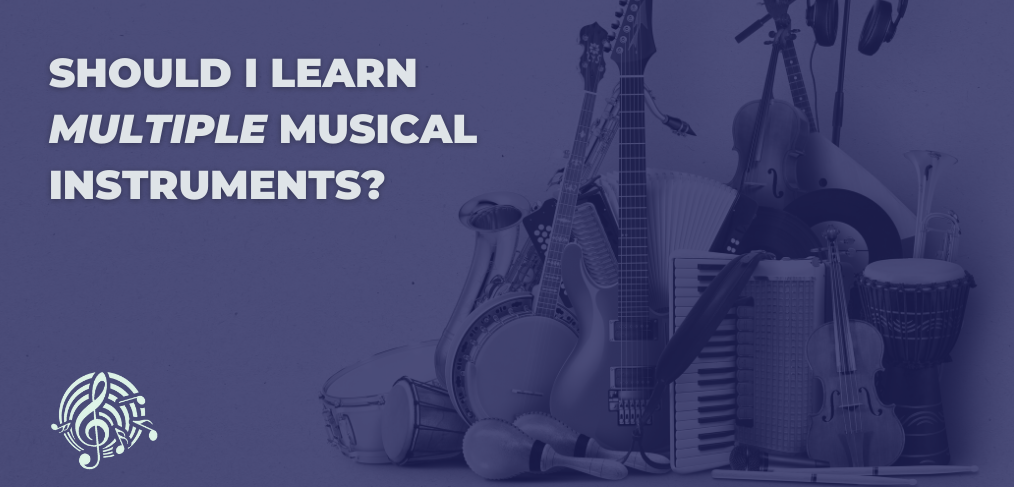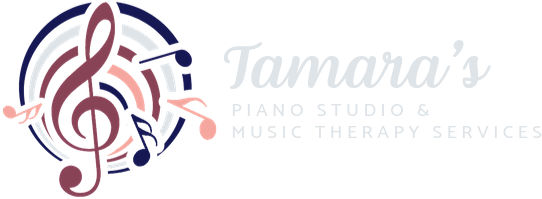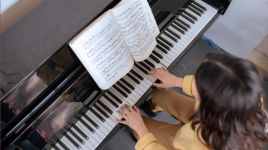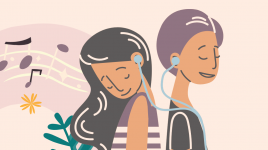
Should I learn more than one musical instrument?
Why learning multiple musical instruments can be beneficial and fun
There have been many studies to demonstrate the benefits of how learning music affects the brain. Learning a musical instrument can lead to greater levels of patience and discipline, increased confidence, improved motor skills, and the list goes on.
This creates the question: Should you learn more than one instrument? Some think that learning two instruments at once would be confusing or too much to handle.
Instruments all speak a common language: music.
Even with instruments that seem like they have nothing in common (for example, violin and drums), they have many common traits that contribute towards the overall musicality.
While it does require more commitment, many musicians will often have some degree of competency on a second instrument. So learning two instruments simultaneously is very achievable!
The Benefits
- Better understanding on how instruments interact with each other
Many popular songs and pieces are performed with multiple instruments. The more knowledge you have about other instruments, the better understanding you will have about how each instrument interacts with each other and how sounds grow and blend with others. This not only benefits musicians who want to perform, but also fosters more colour in songwriting and compositions - Fluent in multiple “conversations”
With some considering music as a universal language, each instrument can be seen expressing their own conversations. The more conversations you take part in, the more you can communicate and understand. Learning another instrument expands your understanding of different musical qualities. For example, a piano player who also plays guitar or drums will improve their understanding of the role of rhythm in a melody. - It’s easier the second time around!
Although it may seem like you are starting from the beginning again, that is not the case. It’s likely that you have already learned about music theory and concepts when you played your first instrument. This allows you to focus more on the playing aspect and techniques of the new instrument. It will often feel less overwhelming and easier to understand compared to the first time!
Things to consider
- Extra time investment
Practicing is a key element of learning an instrument. Playing an instrument requires muscle memory which is only acquired through regular practice. While playing a second instrument may sound exciting, you will need to commit to spending more time practicing throughout the week. Splitting the original time used for one instrument may not be effective and may hinder overall progress on both instruments. - More motivation and patience
In addition to time, you will also need extra motivation and patience to learn a new instrument. It can be frustrating to feel like a beginner all over again. That being said, it can be very rewarding to discover more ways to express yourself musically. - Technique interference
Instruments often require different hand positions and wrist movements (you wouldn’t want to play the violin with the same hand position you use to play the piano). If you’re not careful, you may end up developing habits that could lead to potential injuries. It is important to consciously separate techniques.
Bottom Line
If you have the time and resources, learning multiple instruments can be beneficial and fun! It helps develop better musicality and provides more ways to express yourself.
As a multi-instrumentalist myself, I have some songs that I enjoy playing on the piano and others that I like playing on the guitar more. To me, it’s all about giving myself an extra voice to do what I love. My advice would be to stick with one instrument until you have a good grasp on it to avoid being overwhelmed. Good luck on your musical journey!
Resource:
https://www.guitarkitchen.com/learning-new-instruments-for-enjoyment-and-musicality





